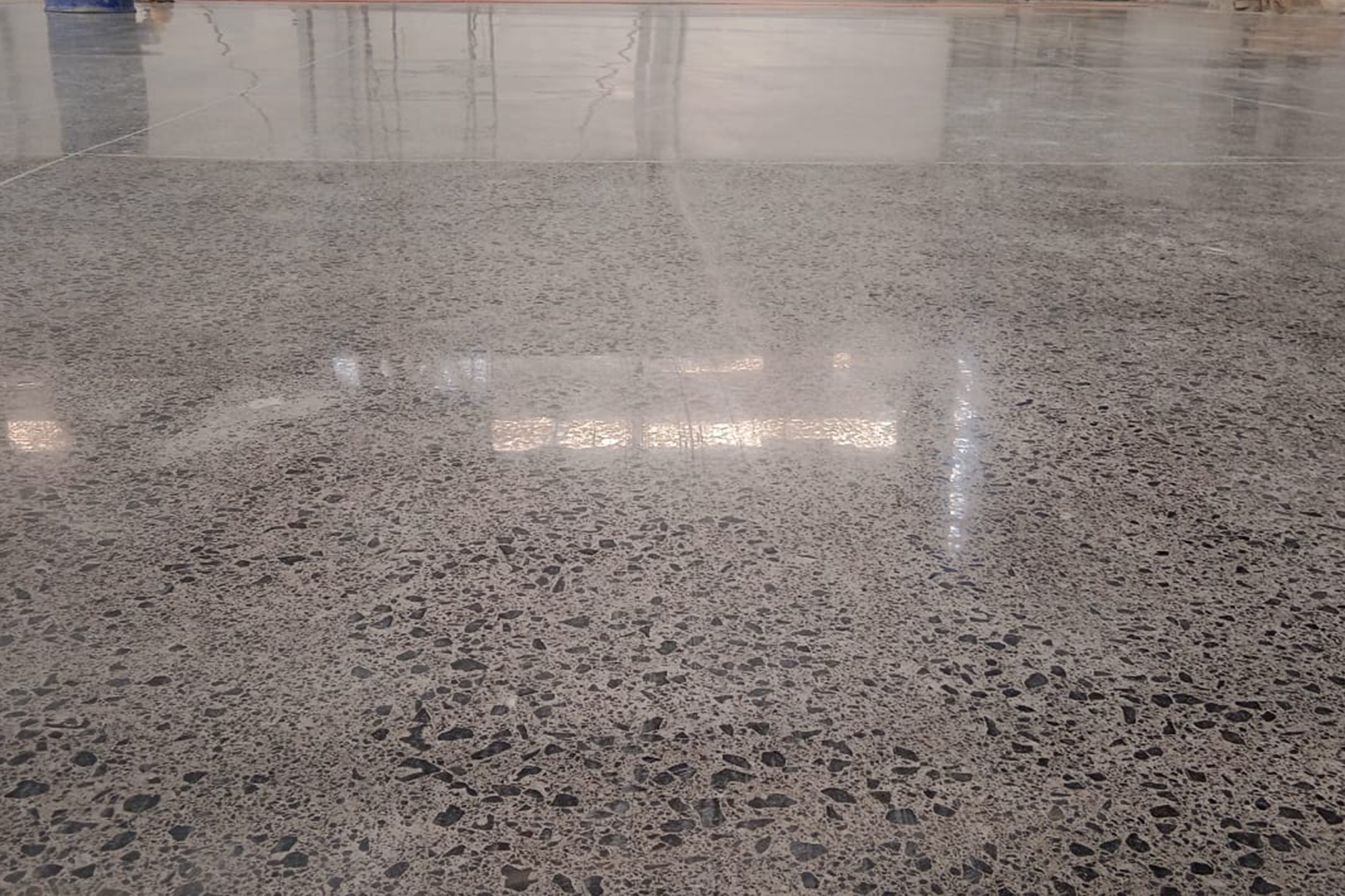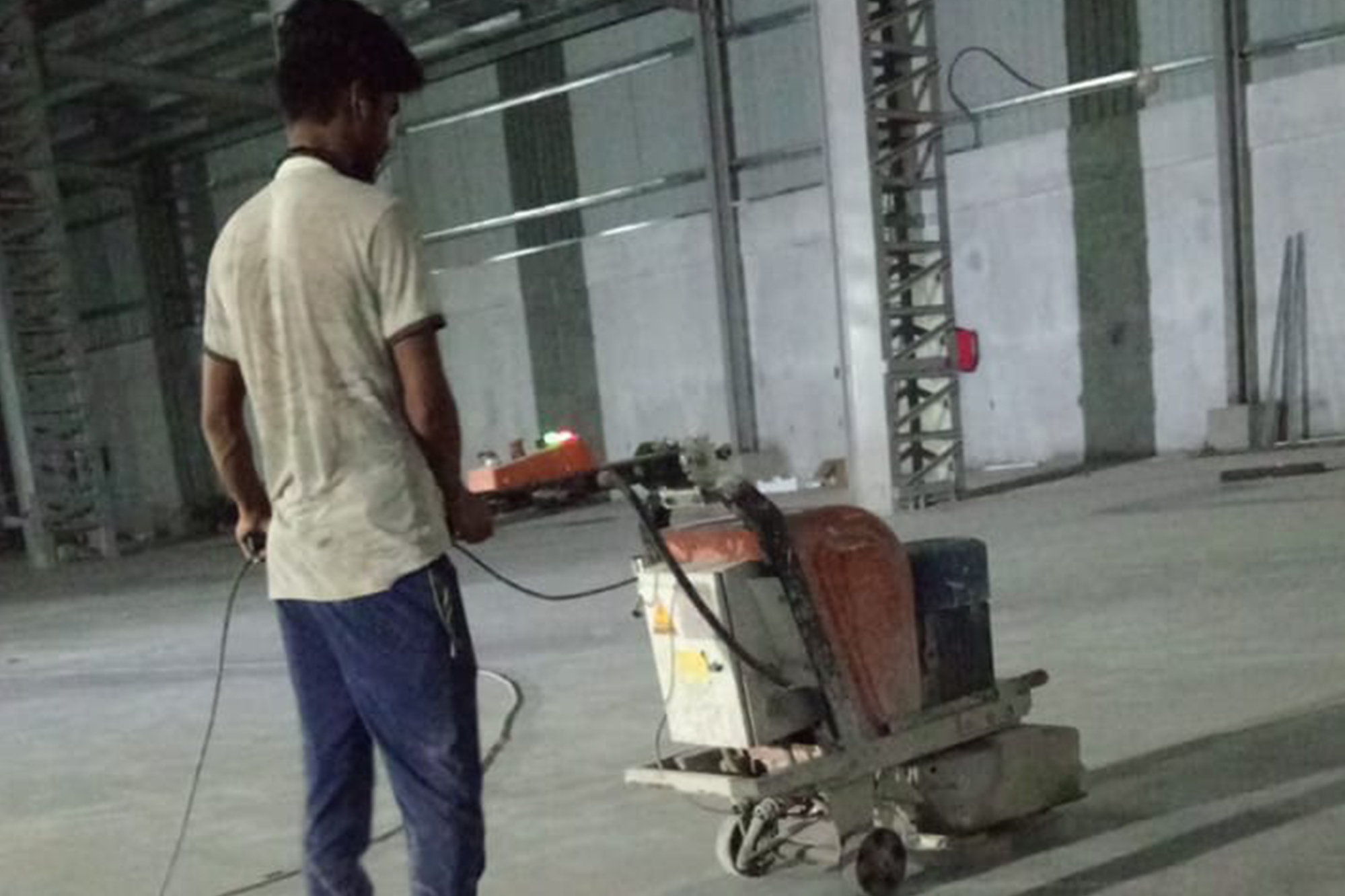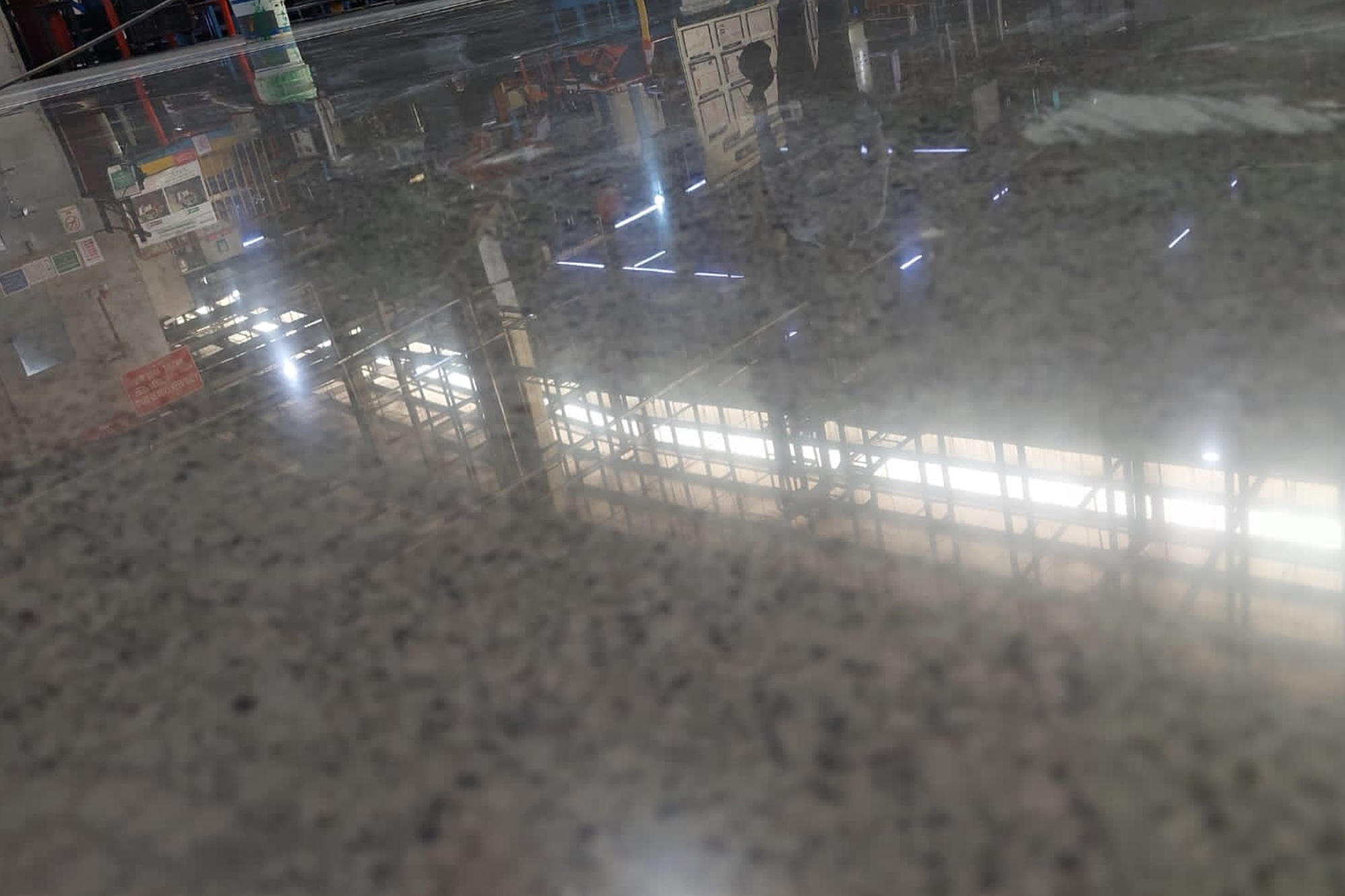Floor Densification
Floor densification, a process often involving the application of a chemical hardener to concrete surfaces and mechanically polishing the surface.
Increased Durability: Densified floors are more resistant to wear and tear, extending their lifespan even in high-traffic areas. This makes them suitable for industrial, commercial, and residential applications.
Enhanced Hardness: The process increases the surface hardness of the concrete, making it less prone to scratches, chips, and other forms of surface damage.
Improved Stain Resistance: Densification fills the pores of the concrete, reducing its ability to absorb liquids. This makes the floor more resistant to staining from spills and easier to clean.
Dust Proofing: By sealing the pores, densification prevents the release of concrete dust, which can be a significant issue in warehouses and industrial settings, improving air quality and reducing maintenance needs.
Increased Reflectivity: Densified floors often have a higher gloss finish, which can enhance the overall appearance of the space and improve lighting efficiency by reflecting more light, thereby reducing the need for additional lighting.
Cost-Effective Maintenance: With their increased durability and stain resistance, densified floors require less frequent maintenance and repairs, resulting in lower long-term costs.








